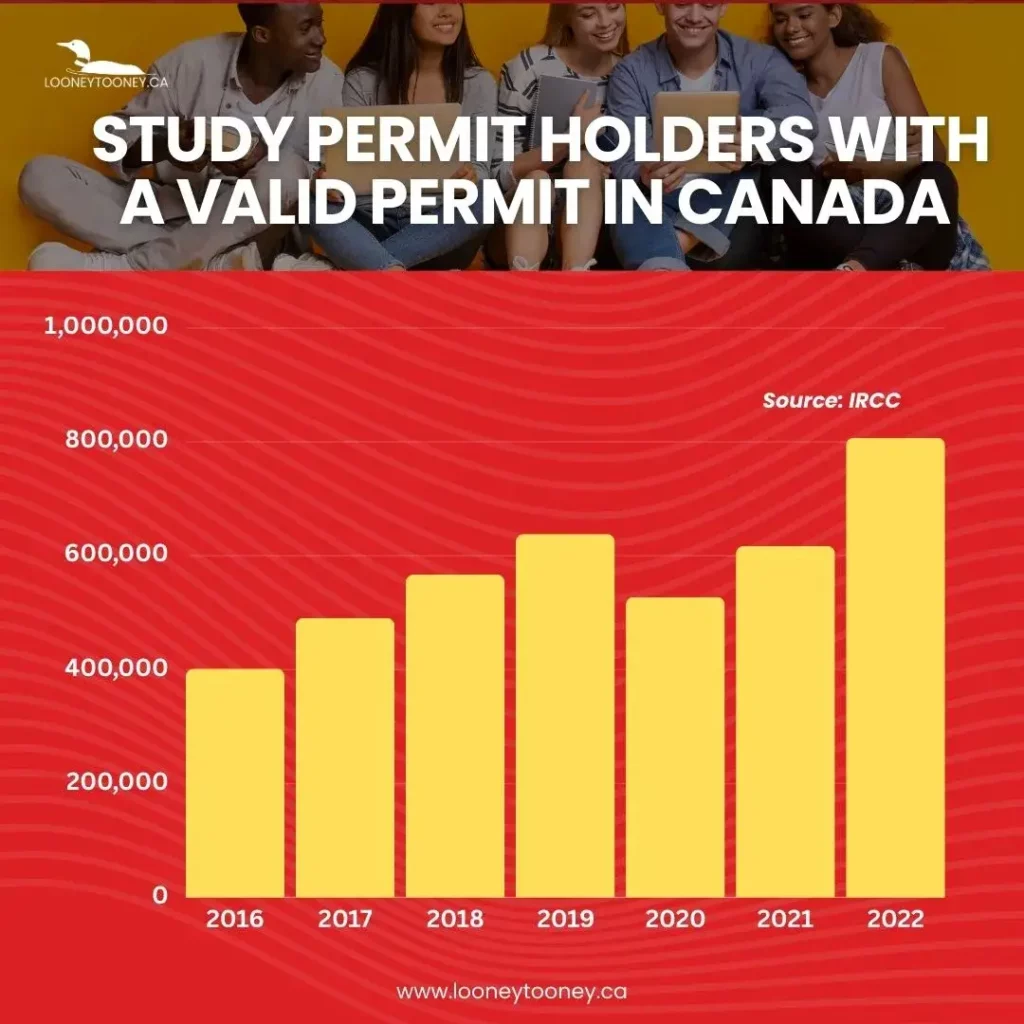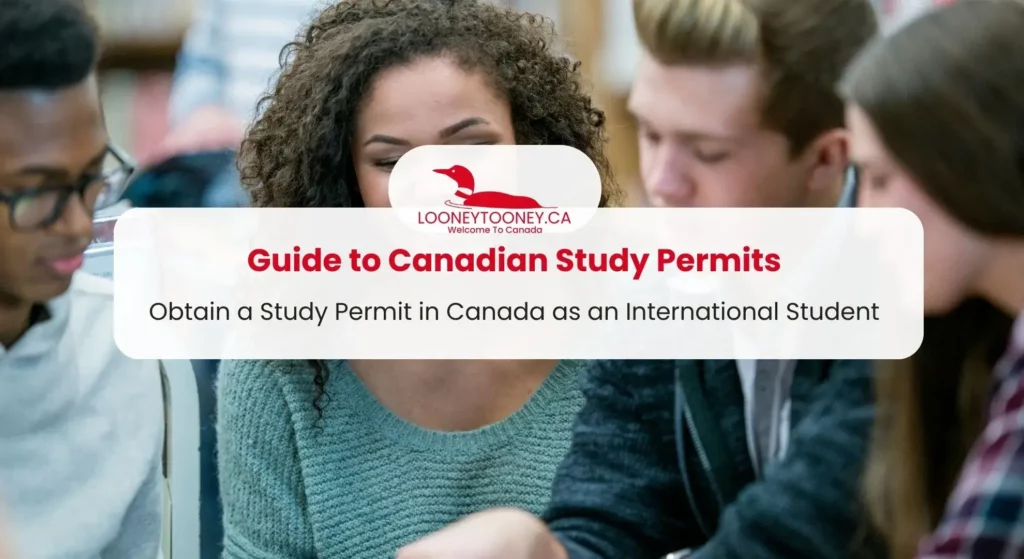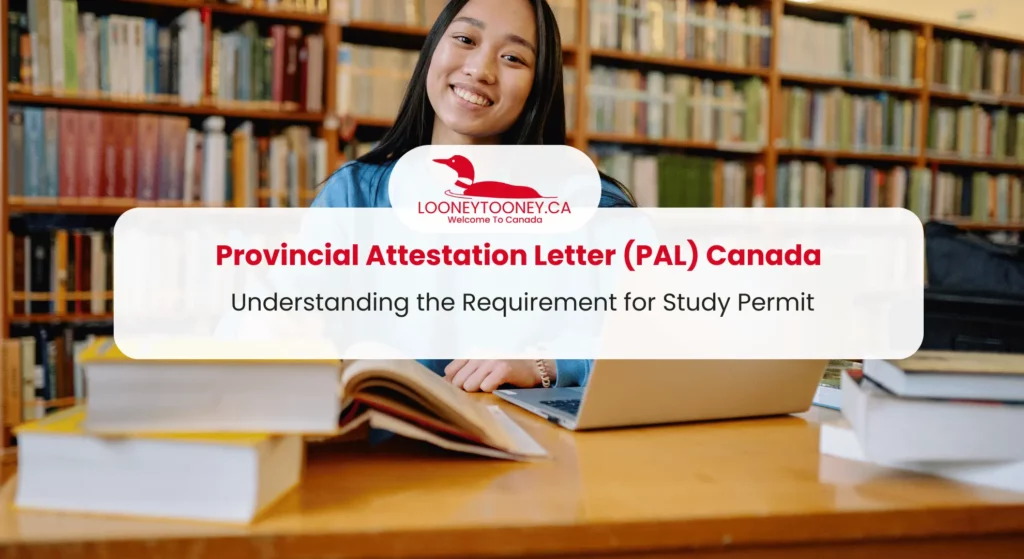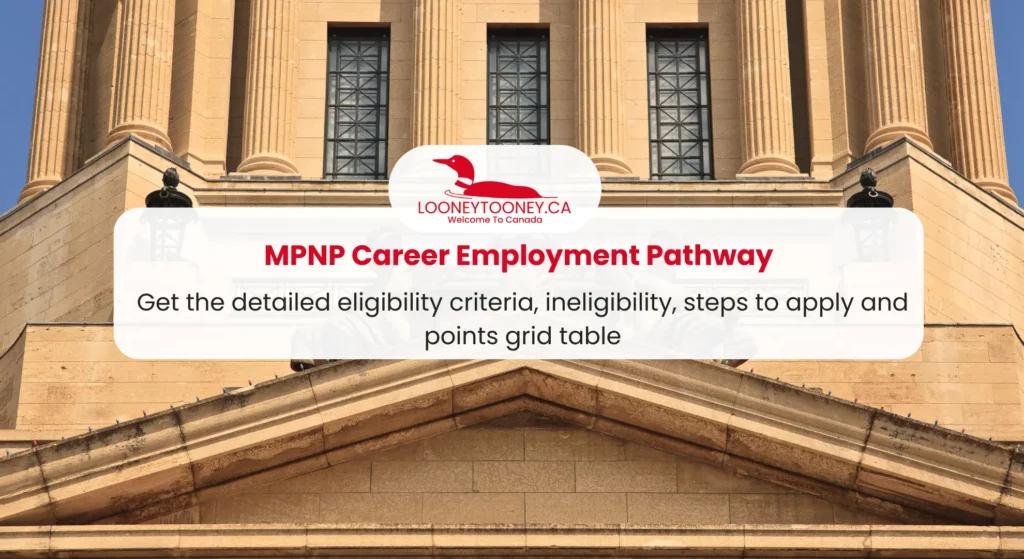Ever dreamt of pursuing your education amidst the stunning backdrop of Canada’s picturesque landscapes and vibrant multiculturalism? Imagine immersing yourself in world-class academics while embracing the warmth of diverse cultures. But wait, before you embark on this exciting journey, have you ever wondered: How can you secure your spot in Canadian classrooms? How do you find your way to obtaining a Canada study permit? Join us as we unlock the doors to your academic aspirations and guide you through the detailed process of obtaining a Canadian study permit.
If you are considering studying in Canada and you are not a citizen or Permanent Resident, then you will need a Canadian study permit. This permit is necessary if your post-secondary studies in Canada will last longer than six months. This permit grants study permission but isn’t an entry visa; a visitor visa or electronic travel authorization (eTA) might be needed. Once your study permit receives approval, the government will provide you with a study permit approval letter and, if required, an entry visa in your passport, granting permission for your journey to Canada.
What is a Canadian Study Permit?
The Canadian study permit is a document issued by Immigration, Refugees and Citizenship Canada (IRCC), enabling international students to pursue their education at Designated Learning Institutions (DLIs) in Canada. For most foreign nationals, obtaining a study permit is essential for studying in Canada. This document contains information regarding your purpose of stay, potential work limitations, the rationale behind your choice to study in Canada, and the level of your chosen course.
If you possess a study permit and are enrolled as a full-time student at a DLI, you might have the opportunity to engage in on-campus or off-campus employment. In such cases, your study permit will carry a condition permitting you to work while pursuing your studies. Additionally, it’s important to note that the study permit remains valid for 90 days following the completion of your study program. If you want to work in Canada after your studies, you will need to apply for a Post-Graduation Work Permit (PGWP).

What is the Duration of Validity for a Study Permit?
A study permit is typically valid for the duration of your study program, along with an additional 90 days. This 90-day period allows you to prepare to depart Canada or submit an application to extend your stay.
Yet, there are a few instances where this usual rule doesn’t apply:
- Conditional acceptance: If your educational institution requires you to take courses (English or French as a second language course) before admitting you to the main program, your study permit will be valid for the duration of those courses plus one year. Once you gain admission to the main program, you will need to apply for an extension to continue your status as a student.
- Delayed course completion: If you are unable to complete your courses before the expiration date on your permit, you must apply for an extension to remain a student.
- Early course completion: If you complete your studies ahead of time, your permit will become invalid 90 days after your studies conclude, irrespective of the date indicated on your study permit.
An important condition of holding a study permit is that you must actively pursue your studies in Canada. If you take a leave of absence from your study program, your study permit will become invalid 150 days after the date your leave was granted, regardless of the original permit’s expiry date. If you fail to resume your studies within 150 days, you are required to either apply for a change in your status within Canada or depart from the country before this period ends.
Eligibility Requirements
You are eligible to pursue studies in Canada if you
- Are enrolled at a Designated Learning Institution (DLI).
- Show that you have enough funds to cover the following costs:
– Your tuition fees
– Costs of living for you and any family members with you in Canada.
– Return transportation for yourself and any family members accompanying you. - Adhere to the legal requirements, possess a clean criminal record, and acquire a police certificate if requested.
- Maintain good health and undergo a medical examination as required.
- Prove an immigration officer that you will depart from Canada upon the expiration of your study permit.
Responsibilities
Throughout your period of study in Canada, you are expected to
- Make consistent progress towards completing your educational program.
- Adhere to any conditions specified on your study permit.
- Stop studying if you no longer meet the eligibility criteria.
In some cases, your study permit might include conditions such as
- Authorization to work in Canada.
- Permission to travel within Canada.
- A specific departure date from Canada.
- Designation of the particular DLI where you are allowed to study.
- A requirement to update your DLI in your IRCC secure account prior to changing institutions.
- The necessity of undergoing an immigration medical examination.
Minimum Funds
Individuals applying for a Canadian study permit must demonstrate their ability to financially support themselves and any accompanying family members, if applicable, during their time in Canada.
To provide evidence of funds for a study permit, you can use the following methods:
- Evidence of a Canadian bank account in your name, in case you have moved funds to Canada.
- Guaranteed Investment Certificate (GIC) issued by a participating Canadian financial institution.
- Proof of a student/education loan obtained from a bank.
- Bank statements covering the last four months.
- A bank draft that is convertible to Canadian dollars.
- Receipts showing payment of tuition and housing fees.
- A letter from an individual or school providing financial support.
- Proof of funding received within Canada, applicable to scholarships or Canadian-funded educational programs.
The minimum fund requirements are detailed below. Note that requirements vary for students intending to study in Quebec.
Minimum funds: Provinces Excluding Quebec
The table outlines the minimum funds requirements for various provinces, excluding Quebec.
| Persons coming to Canada | Yearly funds needed apart from the tuition fees | Monthly funds needed in addition to the tuition costs |
| You (student) | $10,000 | $833 |
| First family member | $4,000 | $333 |
| For each additional accompanying family member | $3,000 | $255 |
Minimum funds for Quebec
The following table outlines the minimum funds requirements for Quebec.
| Persons coming to Canada | Yearly funds needed apart from the tuition fees | Monthly funds needed in addition to the tuition costs |
| 1 person under the age of 18 | $6,569 | $547 |
| 1 person aged 18 or over | $13,134 | $1,095 |
| 2 people aged 18 or over | $19,264 | $1,605 |
| 2 people aged 18 or over and 1 person under the age of 18 | $21,579 | $1,798 |
| 2 people aged 18 or over and 2 people under the age of 18 | $23,290 | $1,941 |
International Student Document Checklist
You need certain documents for the application process. Here’s a list of documents that you might be asked for.
The following documents are obligatory for your study permit application:
- Proof of acceptance
- Proof of identity
- Proof of financial support
Additional documents that might be necessary include:
- A letter of explanation
- An attestation of issuance of your Quebec Acceptance Certificate (CAQ)
- A medical exam
- A custodian declaration (minors only), or
- Any other documents as per the request during the ongoing application process
How to Apply for a Canada Study Permit?
International students can follow the steps outlined below when applying for a study permit in Canada:
- Step 1: Ensure that you meet the eligibility requirements for obtaining a Canadian study permit. You will need an acceptance letter from a Designated Learning Institution, proof of financial support, and a set of documents that varies based on your country of citizenship and residence. From January 22, 2024, you will also need a provincial attestation letter in some cases.
- Step 2: Once you have confirmed your eligibility, you can start preparing your study permit application. Make sure you have collected all the necessary documents specific to your country. It’s recommended to have an experienced immigration representative review your application before submitting it, as immigration officers can reject applications that don’t meet all the requirements.
- Step 3: Towards the end of your application, the IRCC will request you to pay the required fees. These fees generally cover processing costs for you and any additional applicants, as well as biometrics. Depending on your circumstances, you might also need to pay third parties for services like medical exams, police certificates, language testing, and visa application center services if you choose to use them.
- Step 4: When submitting your study permit application, you have two choices. You have the option to submit an electronic application through an account on the IRCC website, using scanned or electronic copies of your documents. Alternatively, you can assemble a hard copy of your application and send it via mail to the Visa Application Centre (VAC) designated for your country.
- Step 5: If your study permit application is approved, you are ready to come to Canada! Keep in mind that you won’t receive your Canadian study permit until you arrive at a Canadian Port of Entry (POE). After approval, the Canadian government will provide you with a Port of Entry Introduction Letter. This letter is essential, as you will need to present it to the immigration officer at the POE to receive your study permit.
Quick Route: Student Direct Stream (SDS)
If you are legally residing in specific countries, you might speed up your study permit process by applying online through the Student Direct Stream (SDS). The SDS can help you get your study permit faster, depending on where you live.
To qualify for the SDS, you should:
- Be a legal resident in certain countries like India, China, the Philippines, Pakistan, Vietnam, Morocco, Senegal, Brazil, Colombia, Peru, Antigua and Barbuda, Costa Rica, Trinidad and Tobago, or, Saint Vincent and the Grenadines.
- Have a letter of acceptance from a Canadian DLI.
- Applying for a study permit while residing outside of Canada.
- Provide evidence of payment for the first year’s tuition fee.
- Have a Guaranteed Investment Certificate with a participating Canadian bank of $10,000 CAD.
- Get a Certificat d’acceptation du Quebec (Quebec Acceptance Certificate, or CAQ) if you are planning to study in Quebec.
- Take a medical exam before submitting your application (if required).
- Get a police certificate before submitting your application (if required).
- Provide your latest academic records (both secondary and post-secondary).
- Obtain a language test score meeting the following criteria:
– A score of at least 6.0 in each skill on the IELTS exam.
– A TEF score that’s equal to a Canadian Language Benchmark score of a minimum of 7 in each skill.
Usually, IRCC processes most SDS applications within 20 days, but some may take longer. To speed things up, make sure to give your biometrics early and meet all eligibility requirements.
Canada Study Permit Processing Time
The processing times for study permits differ depending on your country of residence. While the shortest processing period can be as brief as 1-2 weeks, certain applicants might encounter wait times of up to 16 weeks. The duration of processing is influenced by the volume of applications. Applying near the commencement of Canada’s academic year could result in potential delays.
Post Canada Study Permit Application
IRCC will review your application to ensure you have included all the necessary documents. If your application is incomplete, they might return it without processing or request the missing documents.
Potential Requests from IRCC
- Interview Possibility: Depending on your situation, you might receive a request to attend an interview with officials in your home country.
- Supplementary Information: There might be a need for you to provide additional information to complete your application.
Additional Requirements
- Medical Examination: In some cases, you might need to undergo a medical examination as part of the process.
- Police Certificate: Depending on your circumstances, obtaining a police certificate might be a requirement.
Confirmation of IRCC Approval
Once your application has been approved by the IRCC, your study permit will be issued using one of the following methods:
- Port of Entry Arrival: If you are entering Canada, your study permit will be granted when you arrive at the port of entry.
- Mailed within Canada: If you are already in Canada, your study permit will be sent to you by mail.
For Applicants Outside Canada
For those applying from outside Canada, a pivotal step is the receipt of the introduction letter for the port of entry upon approval. This letter underscores your eligibility to study in Canada, distinct from your study permit. It’s vital to understand the subsequent actions and considerations to ensure a smooth transition into the country.
Introduction Letter for Port of Entry
Upon approval, you will receive a letter of introduction for the port of entry. This letter confirms your eligibility to study in Canada but should not be mistaken for your actual study permit.
Key Steps
Border Entry: Present the letter of introduction to a border services officer upon your arrival in Canada.
Electronic Travel Authorization (eTA) or Visitor Visa: The IRCC will also provide you with an electronic travel authorization (eTA) or a visitor visa (temporary resident visa) for your entry into Canada if required.
For Countries Requiring an eTA
If your country mandates an eTA, the introduction letter will include relevant details. The eTA will be linked to your passport and typically remains valid for up to 5 years or until your passport expires. It’s essential to travel with the passport used during your study permit application.
For Countries Requiring a Visitor Visa
If a visitor visa is necessary, it will be stamped in your passport. This visa will specify whether you are granted single or multiple entries. Make sure to enter Canada before the visa’s expiration date.
For U.S. Lawful Permanent Residents
If you are a lawful Permanent Resident of the United States, ensure you carry a valid green card (or equivalent U.S. status proof) along with a valid passport from your country of nationality (or equivalent document).
Entry Procedures Upon Arrival in Canada
Upon reaching Canada, a border services officer will evaluate your adherence to critical requirements. To enter the country, you need to meet the following prerequisites:
- Possess a valid travel document, like a passport.
- Have the port of entry letter of introduction that was sent to you by the visa office upon approval of your study permit. This letter contains your permit reference number, crucial for the issuance of your study permit.
- Carry a copy of a valid letter of acceptance from your educational institution.
- Hold any letters of reference or documents as specified by the visa office.
- Hold a valid electronic travel authorization (eTA), visitor visa (temporary resident visa), green card, or equivalent official proof of U.S. status, or any other acceptable travel document.
- Demonstrate sufficient funds for your stay, as the required amount can vary based on factors like duration of stay and accommodation arrangements
- Be in good health and without any criminal or immigration-related convictions.
- Convince an immigration officer that you have ties, such as employment, residence, financial assets, or family connections, which will ensure your return to your home country upon the completion of your visit.
- Furnish valid immigration medical exam results, if applicable. The validity of the exam extends for 12 months from the date of issuance and must be current on the day of your entry into Canada. If your exam’s validity expires before your entry, you will need to undergo another medical examination, regardless of the status of your letter of introduction.
It is important to note that your educational institution might require proof of your entry into Canada. To obtain this proof, ensure that a border services officer stamps your passport before you leave Canadian customs. Alternatively, you may also use a Primary Inspection Kiosk to obtain a passport stamp.
Study Permit Exemptions
For the majority of foreign nationals, obtaining a study permit is a prerequisite for studying in Canada. However, there are specific situations in which this requirement does not apply.
1. Short-term Students: If you intend to participate in a program in Canada that has a duration of 6 months or less, you are not obligated to obtain a study permit.
2. Family or Staff of Foreign Representatives: If you are a family member or staff of a foreign representative to Canada who holds accreditation from Global Affairs Canada (GAC), you might not need a study permit. GAC can be contacted by your embassy to ascertain whether a study permit is necessary in your case.
3. Members of Foreign Armed Forces under Visiting Forces Act (VFA): If you are a member of a foreign armed force (whether military personnel or designated civilian personnel) from a country designated under the Visiting Forces Act (VFA) and are on official duties in Canada, a study permit is not required. It is recommended that you possess a letter of acceptance from Canada’s Department of National Defence.
Note: If your family members, including minor children, intend to study in Canada, they may still need a study permit.
4. Registered Indians in Canada: If you have Registered Indian status in Canada, even if you hold citizenship in another country, you do not need a study permit.
5. Minor Children in Canada: Minor children do not need a study permit under the following circumstances:
- They are refugees or refugee claimants.
- Their parents are refugees or refugee claimants.
- Their parents are Canadian citizens or hold Permanent Resident status in Canada.
- They are in Canada attending preschool, primary school, or secondary school, accompanied by a parent authorized to study or work in Canada.
- They are in Canada unaccompanied and attending preschool, primary school, or secondary school.
Despite not being required, IRCC recommends that minor children obtain a study permit due to potential benefits, such as the ability to stay in school after reaching the age of majority, eligibility for a secondary school co-op work permit, and access to social services in some provinces or territories.
6. Temporary Residents and Asylum Seekers taking French Language and Culture Courses: If you are a temporary resident or asylum seeker in Canada and wish to enroll in French language and cultural integration courses in Quebec, you do not need a study permit for these courses.
7. Temporary Residents taking Settlement and Integration Courses: If you are participating in settlement and integration courses offered by a provincial or territorial government to aid your integration into Canada, a study permit is not required.
8. Workers Studying without a Study Permit: You might be eligible to study in Canada without a study permit in the following situations:
- You possess a valid work permit issued on or before June 7, 2023.
- You have received a letter before June 7, 2023, allowing you to work while your work permit application is being processed. This letter can be used while awaiting a decision on your work permit extension.
Discover your eligibility here.
In Pursuit of Excellence: Your Path to Canadian Education
Venturing into the process of obtaining a Canadian study permit can be complex, but armed with the right information, you can confidently set forth on your educational adventure. From eligibility requirements to the application process, comprehending the nuances of study permit validity and exemptions, this guide has covered essential aspects to ensure you are well-prepared.
Remember, while the path might include paperwork and protocols, the ultimate destination—a world-class education and enriching experiences in Canada—makes every endeavour worthwhile.
We believe that this article about the “Canada Study Permit” has offered you valuable information. If you are keen on exploring more about the latest news from Canada, be sure to check out LooneyTooney.ca.
You might also find the following information useful:
- OINP International Student Stream: Eligibility & More
- Exploring Student Discounts: Budget-Friendly Ways to Enjoy Canada
- Affordable Cities for International Students in Each Canadian Province
- Top PG Diploma Courses in Canada: PR Through In-Demand Job
- Top Universities in Canada: Check Rankings & Student-Friendly Cities





